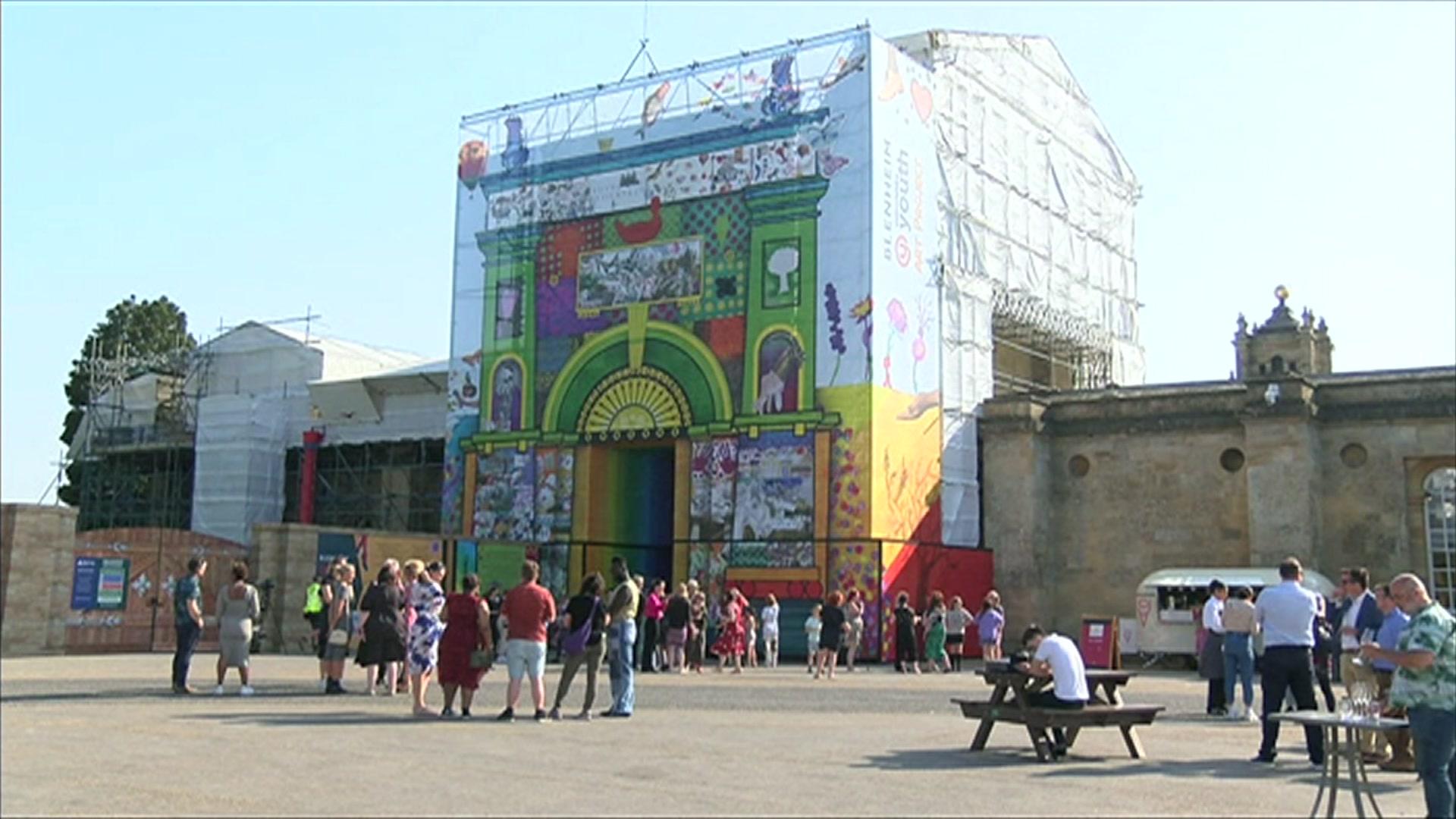Blenheim Palace Estate pilots organic waste project
- Published
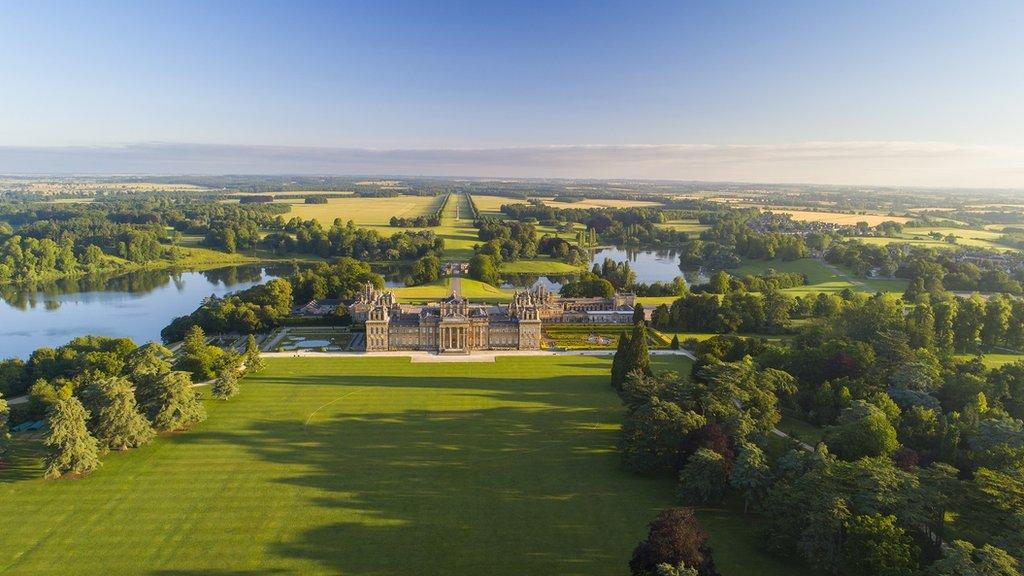
The estate says the project is "a major step" towards its net zero pledge
Blenheim Palace Estate has announced a "groundbreaking" project to transform its organic waste.
The Unesco World Heritage Site has partnered with environmental consultants Tumblebug for a six-month pilot.
Some of the waste, which includes food and sheep wool, will be transformed for various uses such as soil fertilising.
Roy Cox, the palace's managing director of estates, said the move was "a major step" towards its net zero pledge.

Automatic composting machines and Tumblebug's biochar filter process will be used to transform the waste
The project, which is being funded by the UK's national innovation agency Innovate UK, is seen as a potential blueprint which the UK's 6,000 other landed estates could adopt to achieve their own sustainability targets.
The project will use automatic waste composting machines and a biochar filter process, which removes impurities from water using charcoal.
It will transform the organic waste into dry, sanitised, odour-free and nutrient-rich material for soil conditioners, compost additives and organic fertilisers, the palace said.
The material could then be used as a soil conditioner, an additive for compost or as an ingredient for organic fertiliser production.
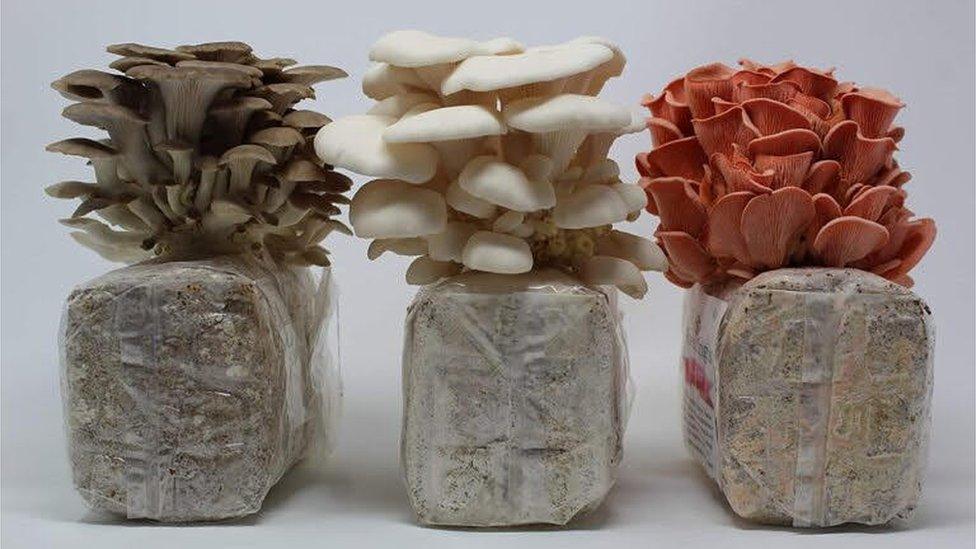
The project will also see the creation of an organic mushroom farm
The project will also see the creation of an organic mushroom farm on the estate and the trialling of a carbon removal technology with "a myriad of uses" including the reduction of nitrogen and phosphorus run off into surface water, the palace added.
Mr Cox described it as "a major step" towards becoming a net zero business and creating circular businesses from the estate's waste.
Tumblebug founder and CEO, Sylvie Verinder, said the team "look forward to building the human-centred design project".
If the pilot is successful, the estate said the project would be developed further to accelerate its net zero pledge.

Follow BBC South on Facebook, external, X, external, or Instagram, external. Send your story ideas to south.newsonline@bbc.co.uk.
Related topics
- Published26 January 2024
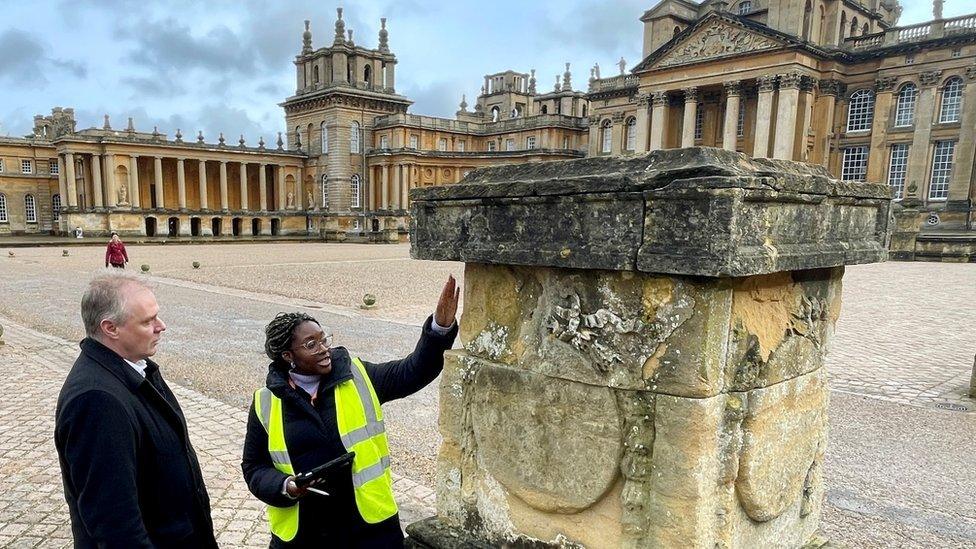
- Published25 December 2023
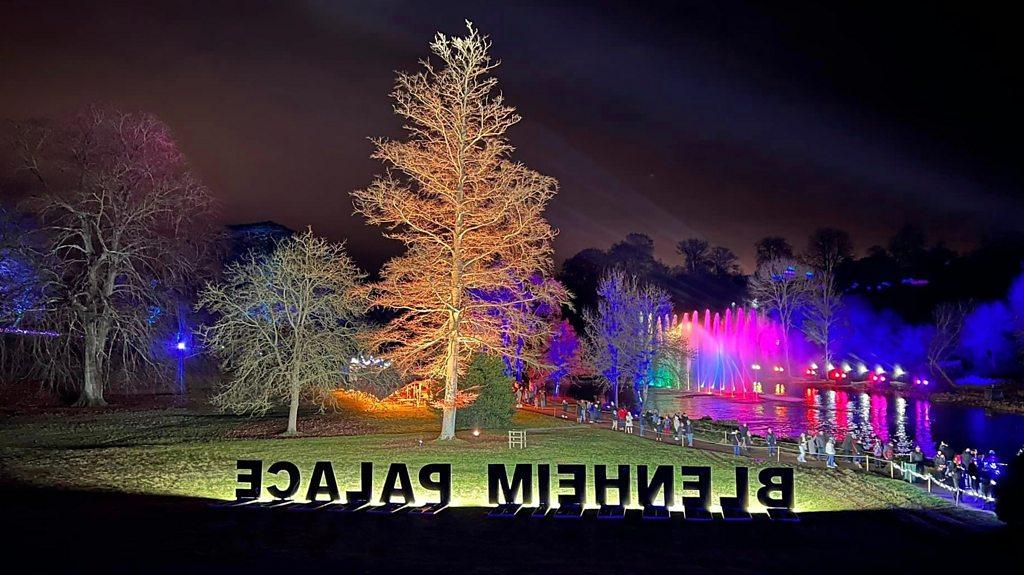
- Published15 June 2023
